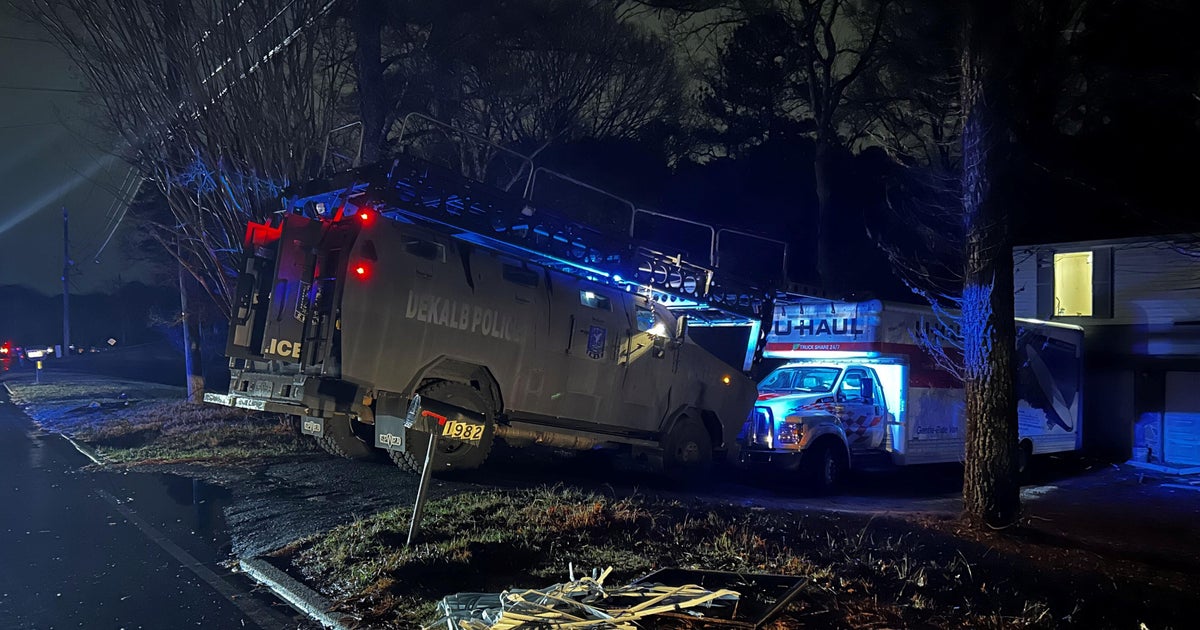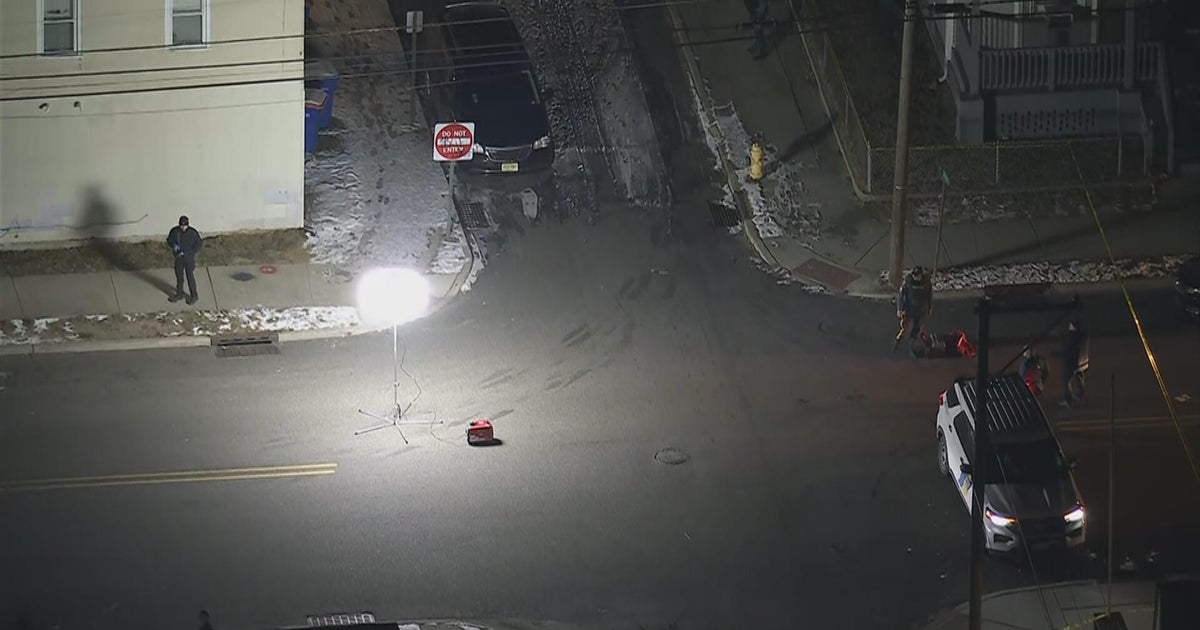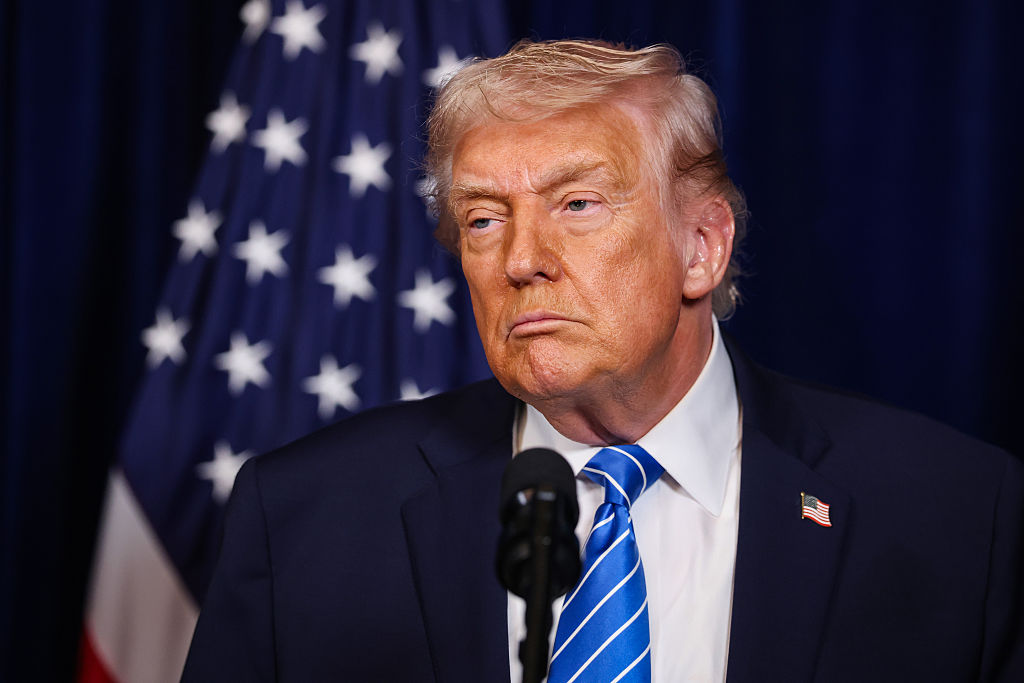Federal government executes former U.S. soldier who said witchcraft drove him to kill nurse
The U.S. government on Tuesday executed a former soldier who said an obsession with witchcraft led him to kill a Georgia nurse he believed had put a spell on him. William Emmett LeCroy, 50, was pronounced dead at 9:06 p.m. ET after receiving a lethal injection at the same U.S. prison in Terre Haute, Indiana, where five others have been executed in 2020 following a 17-year period without a federal execution.
Lawyers had asked President Trump in a petition to commute LeCroy's sentence to life in prison, saying that LeCroy's brother, Georgia State Trooper Chad LeCroy, was killed during a routine traffic stop in 2010 and that another son's death would devastate the LeCroy family.
LeCroy, a blue sheet pulled up to this neck, kept his eyes fixed on the ceiling, not turning his head to look at any witnesses behind the death chamber's glass windows. His spiritual adviser, Sister Barbara Battista, stood a few feet away inside the chamber, her headed bowed and reading from a prayer book.
LeCroy had told her last week that didn't want to play into what he called the "theater" surrounding his execution and may not make a statement before he died. When a prison official leaned over him Tuesday night, gently pulled off LeCroy's face mask and asked if he had any last words, he responded calmly and matter-of-factly. "Sister Battista is about to receive in the postal service my last statement," he said.
LeCroy kept his eyes open as the lethal injection was administered. His eyelids began to slowly close as his midsection quickly began to heave uncontrollably for a minute or two. After several more minutes, color drained from his limbs, his face turned ashen and his lips tinted blue. After about 10 minutes, an official with a stethoscope entered the chamber, felt LeCroy's wrist for a pulse and then listened to his heart before he was officially declared dead.
Another execution, of Christopher Vialva, is scheduled Thursday. He would be the first African American on federal death row to be put to death in the series of federal executions this year.
Critics say Mr. Trump's resumption of federal executions this year is a cynical bid to help him claim the mantle of law-and-order candidate leading up to Election Day. Supporters say Mr. Trump is bringing long-overdue justice to victims and their families.
LeCroy broke into the Cherrylog, Georgia, mountain home of 30-year-old Joann Lee Tiesler on October 7, 2001, and waited for her to return from a shopping trip. When she walked through the door, LeCroy struck her with a shotgun, bound and raped her. He then slashed her throat and repeatedly stabbed her in the back.
LeCroy had known Tiesler because she lived near a relative's home and he would often wave to her as he drove by. He later told investigators he'd come to believe she might have been his old babysitter he called Tinkerbell, who LeCroy claimed sexually molested him as a child. After killing Tiesler, he realized that couldn't possibly be true.
Two days after killing Tiesler, LeCroy was arrested driving Tiesler's truck after passing a U.S. checkpoint in Minnesota heading to Canada.
Authorities found a note LeCroy wrote before his arrest in which he asked Tiesler for forgiveness, according to court filings. "You were an angel and I killed you," it read. "I am a vagabond and doomed to hell."
As she waited near the prison to enter and witness the planned execution, LeCroy's spiritual adviser, Sister Barbara Battista, held a bag of caramel chocolate that she said was LeCroy's favorite. She was scheduled to speak to him before the execution and then stand nearby when the lethal injections began. She last spoke to LeCroy seven days ago and quoted him as saying he had been contemplating his likely death, adding he sounded resigned to it.
"He said, 'You know, once we were not and then we are and then we are not,'" she said. "He was reflective. He didn't seem agitated." She said he wasn't sure he would have last words, telling her he didn't like "how the process is all theater."
LeCroy, who joined the Army at 17 but was soon was discharged for going AWOL, later spoke about an interest in witchcraft that began during a previous stint in prison for burglary, child molestation and other charges.
LeCroy said he ruminated for days before the slaying about how Tiesler was Tinkerbell and that assaulting her would reverse a hex she put on him. After he cut her throat, he went to Tiesler's computer to search for books about witchcraft, filings say.
Jurors in 2004 convicted LeCroy on a federal charge of carjacking resulting in death and recommended a death sentence.
LeCroy's lawyers sought to halt the execution on appeal on multiple grounds, including that his trial lawyers didn't properly emphasize evidence about his upbringing and mental health that could have persuaded jurors not to impose a death sentence.
The petition to Trump noted that the man who killed LeCroy's brother, Gregory Favors, pleaded guilty in state court and received a sentence of life in prison, arguing that the two cases show how outcome of capital cases can be arbitrary.
The vast majority of executions in recent decades have been carried out by states. Over the previous 56 years, before the Trump administration's reboot of executions this year, the federal government had executed just three people — all in the early 2000s. Oklahoma City bomber Timothy McVeigh was among them.





